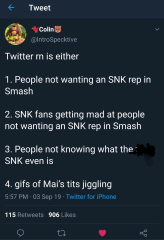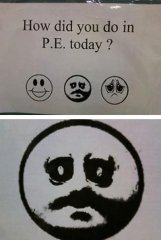I made a comment that you could pick apart the individual circumstances if you wished, but that again, that doesn't matter when many of these games trend downward in sales and never did amazingly even at their absolute peaks.
I always hear about Golden Sun Dark Dawn being screwed over by releasing late in the DS' life and I'm honestly not convinced on that argument. The game released 4 months before the 3DS launched, so there was a pretty wide window in that lead-up period. Then, to further complicate that situation, the 3DS went for months without quality software and did poorly, so the DS remained king in most people's eyes and new 3DS owners had backwards compatibility to play older titles for those people starved for new games to play. The game also averaged a 8/10 with most review sites, and while not as loved as the GBA games, was still well received with a lot of fans too. So it wasn't a massive quality issue like a lot of sequels have had. There's also Pokemon Black and White that came out a year after Golden Sun that still managed to sell almost 16 million units (I mean, yeah, it's Pokemon, but that's only like 2 million removed from Diamond/Pearl and it shows that there was indeed a market for DS games at the time). Not to mention the DS had an install base of well over 100 million by that point. The only real issue I see looking back at Dark Dawn is the advertising, but Nintendo made a big deal about Golden Sun returning at E3 2009 and its showing at E3 2010... Dark Dawn's narrative has always been the "poor Golden Sun game released at the wrong time," and I used to refer to that narrative too. But the more I look into that situation, the less convincing it seems.
But to reference something more recent: Metroid Samus Returns released in 2017 as the new 2D Metroid and a remake of a game people had been asking for. Yes, people can argue about the Switch and the 3DS to some extent, but giving the fans exactly what they wanted still resulted in sales of barely over half a million. They gave it to a player base of 70 million at the time and they barely touched it. There's a good chance it would have performed better on Switch, sure. But Nintendo still gave fans what they wanted and they didn't exactly come out in droves to support the exact product they had been asking for officially from Nintendo despite it being an, by all accounts, excellent re-imagining of Metroid II. When you're franchise or games series isn't doing well, you can't really afford to be a choosing beggar about a ton of the specifics of it, especially when the title ends up an actually quality release, just not on the flashiest system (which again, had a huge install base and the Switch was still working on proving itself in September 2017 and arguably, even Nintendo themselves weren't ready for it to be the standout success it was).
It's also worth bringing up the point that smaller releases like Wargroove and Fast Racing Neo work so well and are successful because they don't have to invest as much money into their projects and have smaller teams to develop their own titles. They don't have to sell as much to make a profit, whereas a new F-Zero for example would absolutely demand high quality and a bigger budget to live up to Nintendo standards. That's usually taking development resources away from another potential project to fund this one, which struggled in the past and doesn't read well when you're looking at the data. I think people forget just how much of a business Nintendo actually is. They're leagues better than other gaming companies, but there's also a practical side to them, and when these titles also don't have people in Nintendo pushing passionately for their return, they're a lot less likely to come back. It also doesn't help when a comparable big release of the same type of game by Sony doesn't sell well. The Wipeout Omega Collection is an amazing game that combines lots of releases people didn't have access to... and they've been rewarded with less than a million sales, which is probably enough profit for the HD re-releases, but doesn't inspire a ton of confidence in a new game.
It's just risk/reward analysis. Yes, they would have missed out on Fire Emblem becoming a huge IP if Awakening had not done extremely well, but that's an impossible hail mary type situation that you could never predict working out as amazingly as it did. Yes, part of business is diversification and investing in a wide variety of projects. But Nintendo seems pretty clear in their interest to pushing forward new ideas and new IPs over digging up old ones that never had the best sales at their peaks. And again, I can't emphasize this point enough, a lot of these titles, are not bringing in the customers Nintendo wants. As a business, you want to expand your market share and that means bringing in new customers to buy your products. A new F-Zero, a new Golden Sun, a new Advance Wars... those games are for the Nintendo dedicated and hardcore, and most of them are already buying a Switch and several games. Nintendo's learned that they can largely just release really solid Mario, Smash Bros, and Zelda titles and placate that section of the fan base basically no matter what. It's uninteresting from an investment angle to just keep investing in those people when you've already found a really solid flow of content to provide to those consumers. So, what do you instead? You invest in new projects that will convince people they need that system or that game, and invest in "new ways to play" to make the system more attractive. You invest in making a Nintendo LABO, you invest in new IPs and hope you get a Splatoon, you partner with third parties to bring big hits to the Switch and reaffirm your commitment to support beyond first party Nintendo IPs. You spend the capital on R&D for the next system so you can get another Switch type situation with whatever the next console is.
To be clear, I'm not saying that these titles have absolutely no chance at having a place in the Switch library. They may sell incredibly well if released on Switch. BUT, they are not attractive investments for the shareholders at Nintendo and they're going to struggle to be made without an active voice within Nintendo pushing for them (like Miyamoto and Star Fox Zero, as poorly as it turned out, that's what brought Star Fox back). There's also just so many fans pushing for so many things, that you more or less do have to pick and choose which things you really prioritize and which ones you don't. Yes, I'm not taking in all of the factors that determined the poor sales of previous games or the failures of a franchise in the past, but it's really worth noting just how actually small of a fan base these titles have from a sales perspective at times and how they failed to turn out to support the series in the past. ANYTHING can theoretically succeed at the right time with the right advertising, and I'm absolutely certain Nintendo is taking everything into consideration for the future. I'd love to see these franchises come back, but in several cases, it will be a big surprise for good reason.




